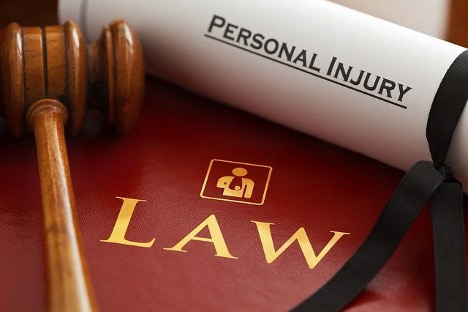The COVID-19 pandemic brought many changes to American life, ranging from mask mandates to new workplace legislation. New laws introduced mandatory safety precautions nationwide, and trends also emerged concerning legal proceedings in niches like personal injury law ever since. The way that cases are handled and how claims are settled has shifted, and judges, attorneys, the public are still coming to terms with these trends.
Cory Ferraez is the lead attorney with Ferraez & Associates, PLLC in Hattiesburg, Mississippi and personal injury law is one of his main practice areas. Below, Mr. Ferraez reports on some interesting trends in personal injury law playing out in courts and districts throughout the US.
Settling Out of Court
A key trend in 2021 personal injury cases is the increase in willingness to settle by defendants and insurance companies. Trials that could not be held virtually have sat in a backlog for months, which presents a huge risk to insured defendants. Some have made their way to courtrooms, but many saw the benefit of a quick settlement.
The claim exposure remains as 2022 draws near, which has led to a rise in favorable settlements simply to wrap up some litigation, according to Cory Ferraez.
Incorporation of Remote Technology
It goes without saying that the pandemic has changed the workplace forever. This includes how video conferencing software will be used in the judicial system moving forward. Jace Ferraez, brother of Cory, works in bankruptcy law at another firm and reports that the rapid implementation of remote technology has been prioritized across all practice areas, not just personal injury law.
What required a trip to the courthouse before can now be done through a virtual appearance. While some functions, like jury trials, should be in person, routing matters like certain hearings, pre-trial motions, and scheduling conferences can be done remotely.
On the firm side, Cory Ferraez says this means depositions for personal injury cases can be conducted differently. It saves money on travel expenses and gives an accessible means of taking depositions. It can aid the discovery process and move the case along.
Ultimately, truly complex depositions should still be done in person, but this is a here-to-stay alternative for easier interviews.
Increase in Settlement Value for Non-Physical Damages
Proving a physical injury, like a broken bone, is much easier than proving loss of enjoyment or emotional damages. However, given the societal trauma sparked by the pandemic, we’re seeing increased recognition of non-physical claims. This includes pain, suffering, emotional damage, and loss of enjoyment. Injuries that block or limit day-to-day enjoyment are more likely to be recognized as trauma than ever before, according to Cory Ferraez.
The pandemic has shown the importance of rights such as mobility, the ability to work, travel, enjoy recreation, engage in leisure activities, and the joy of human interaction. The recognition of this value has increased and is worth more in money damages to reach a fair settlement in a personal injury lawsuit.
Categories of Personal Injury Cases
Cory Ferraez notes that another personal injury trend in 2021 that is likely to continue into 2022 concerns the categories, or types, of personal injury cases.
For example, automobile injuries and distracted driving have always been an active category of personal injury, with hundreds of thousands of cases each year. However, the lack of travel in 2020 saw fewer people on the roads. People who do not work from home have been slowly returning to physical office spaces, and we’re now seeing an increase in these cases. Other types, like product liability, will continue to hold steady.
After the many headlines made about nursing home failures to handle the pandemic safely, we’re already seeing a huge spike in medical malpractice and nursing home litigation. There will be an interesting cross between general immunity for health care providers and the impact of pandemic regulations on people.
Re-evaluating the Reasonable Person
A popular image in the law is the mythical “reasonable person.” This is a hypothetical, similarly situated person whose view the court would take in determining what a “reasonable person” would do in the alleged situation.
A trend resulting from the COVID-19 pandemic will be a reevaluation of the reasonable person standard when applicable to COVID-19 related cases. Cory Ferraez says the standard to assess injuries caused by pandemic choices will be adjusted, and the courts may have to assess state and local COVID-19 regulations at the time of the alleged injury.
The question will shift to ones like: Would a reasonable person in the U.S. where a total or partial lockdown was occurring attend an indoor gathering during the holiday season? Would a reasonable person in the U.S. who was appropriately vaccinated need to wear a mask in the setting? What if they were unvaccinated?
Despite the length of the pandemic, this question will continue into 2022 and remain an important issue in personal injury law for cases dealing with COVID-19-related lawsuits.
What’s Next?
2021 saw a ‘new normal’ for Americans, who slowly began returning to in-space workplaces and frequenting restaurants, hotels, social gatherings, etc. However, Cory Ferraez notes that these personal injury trends are still affecting legal proceedings and changing how lawsuits are processed and evaluated in court.
Jace Ferraez reports there is an anticipated flurry of new bankruptcy case filings coming in 2022, so regardless of practice area, firms and courts need to be flexible and ready to incorporate time saving technology and procedures.
With more people on the road and interacting with one another and new claims being filed regarding COVID-19 issues, Cory and Jace Ferraez agree there are bound to be more changes in personal injury law litigation to come.









